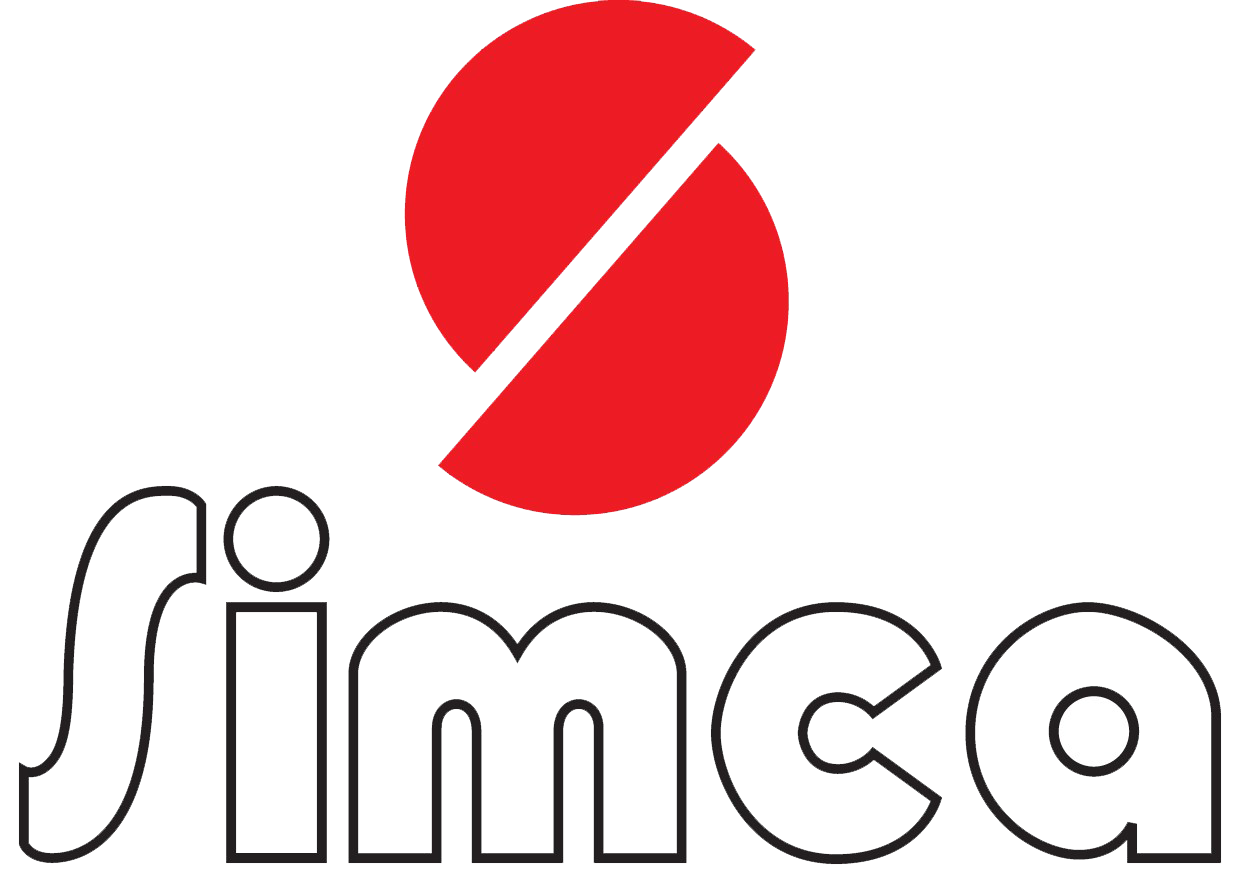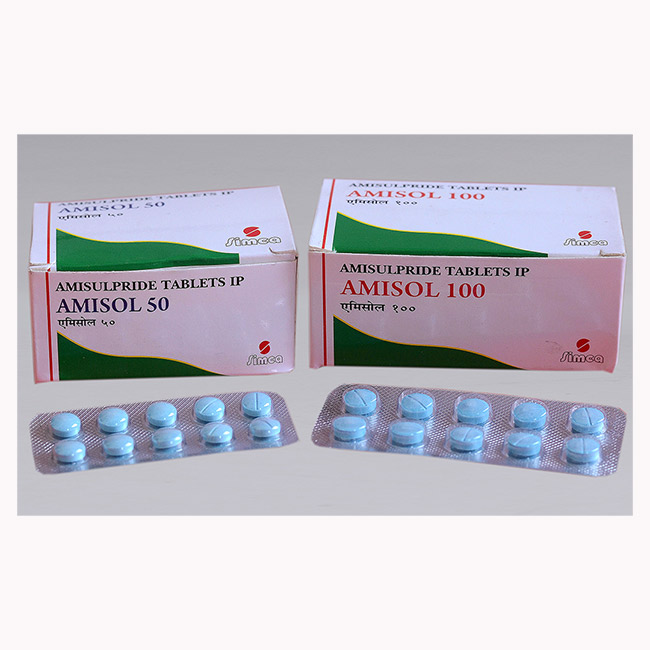Amisol
Generic composition: Amisulpride
General description
Amisulpride is a substituted benzamide derivative structurally related to sulpiride. It belongs to the second-generation antipsychotic that preferably binds to dopamine D2 /D3 receptors in limbic rather than striatal structures.
Therapeutic category
- Atypical Antipsychotics
Dosage forms available
- AMISOL 50mg Tablets
- AMISOL 100mg Tablets
Uses
- Acute and chronic schizophrenic disorders
- Episodes of mania in bipolar disorder.
- Tourette syndrome
Dose
- Acute psychotic episode in schizophrenia: 400-800mg/day in divided doses (BID); maximum recommended daily dose is 1200mg
- For predominant negative symptoms: oral doses between 50mg/d and 300mg/d; doses should be adjusted individually.
- Dosage adjustment in renal failure: The dose should be halved if the Creatinine clearance (Cr Cl) is 30-60 mL/min and reduced to one-third for Cr Cl between 10-30 mL/min
Mechanism of action
Amisulpride binds selectively to dopamine D(2) and D(3) receptors in the limbic system. Low doses of amisulpride preferentially block presynaptic D(2)/D(3)-dopamine autoreceptors, thereby enhancing dopaminergic transmission, whereas higher doses block postsynaptic receptors, thus inhibiting dopaminergic hyperactivity. It may also have 5-ht7 antagonistic effect, useful in depression treatment.
Pharmacokinetics
Absorption: Bioavailability is approximately 36%/48% when given orally; plasma protein binding is 17%,
Half-life: half-life is 12 hours
Metabolism: metabolized in liver
Elimination: excreted unchanged in the urine
Contraindications
- Concomitant prolactin-dependent tumors e.g. pituitary gland prolactinoma and breast cancer
- Hypersensitivity to Amisulpride, other benzamide derivatives or any excipients
- Pregnancy and lactation
- Amisulpride is not recommended for children up to puberty
- Levodopa
- Hepatic impairment
- Class I and III anti-arrhythmic. Ed. Quinidine, amiodarone, sotalol
Interactions
- Amisulpride may enhance the CNS effects of hypnotics, tranquilizers, anesthetics, antihistamines, morphine derivatives, barbiturates, benzodiazepines
- Alcohol: CNS depressant effect may increase
- Phenytoin, Levodopa, valproate
- Antihypertensive: may potentiate hypotensive effect
Precautions:
- Patients with a history of seizures
- Elderly patients: possible risk of hypotension or sedation
- Gradual withdrawal recommended
- Patients with Parkinson’s disease since it may cause worsening of the disease.
Advantages of Amisulpride
- Minimal extrapyramidal side effects.
- Lower chances of weight gain and decreased libido.
- Enhances dopamine transmission.
- Effective in both Acute Psychoses (short term) and Chronic Psychoses (long term). & Positive results against dysthymia.


